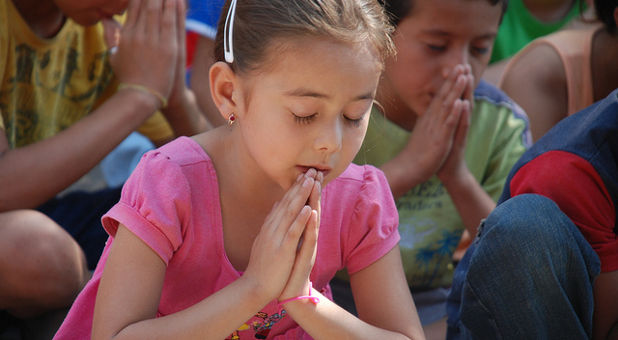South Carolina Bill Would Allow Anyone to Pray—Even Atheists
Prayer could soon be allowed in South Carolina public schools, but with a twist. Democrats have suggested that students may be allowed to pray to whomever they’d like.
House Bill 3526 was originally proposed in February 2013 as a way to put prayer back in public classrooms. The bill initially called for teachers to lead students in prayer each morning, and was backed by 10 state representatives—the majority of whom are Democrat.
The measure has stalled in the state House’s judiciary committee, and critics of the bill have argued that it violates separation of church and state by allowing teachers to lead the prayer.
In a compromise, some Democrat proponents of the bill have suggested a moment of silence in place of teacher-led prayer.
“The compromise would be to have the students to pray to whomever they want to. If they want to do away with teachers conducting the prayer, that would be fine with us. The essential part of the bill—the important part—is putting prayer back in school,” Rep. Wendell Gilliard told ABC News 4 in Charleston.
He added that teachers would merely introduce the moment of silence rather than lead the students in prayer. The bill also says any students who don’t want to participate could leave the classroom.
“There would be no noise, no disruption, no anything. But the teacher would conduct it to let the students know we would have one minute for a moment of silence of prayer. That person can pray to whomever they please,” Gilliard explained.
One sponsor explained that the compromise does not discriminate against the non-religious, because they would also be able to pray.
“Even the atheists, it gives them the option of praying or not praying without anybody interfering,” said Rep. Joseph Jefferson.
Another co-sponsor of the bill, Rep. Robert Williams, said his constituents believe starting off the school day with prayer may reduce school shootings.
“Some of the folks say they never saw where prayer killed anyone in school but they saw what weapons did,” Williams noted. “We’re big on religious principles here. We pray in the General Assembly. We do it every session. What makes the General Assembly different from the school?”
The state’s chapter of the ACLU is monitoring the bill’s progress.
“The rights of non-believers and minority faith observers must also be defended under our system and our constitution, if our state is to thrive in the 21st century as it did at its founding,” said Victoria Middleton, executive director for ACLU of South Carolina.




























































